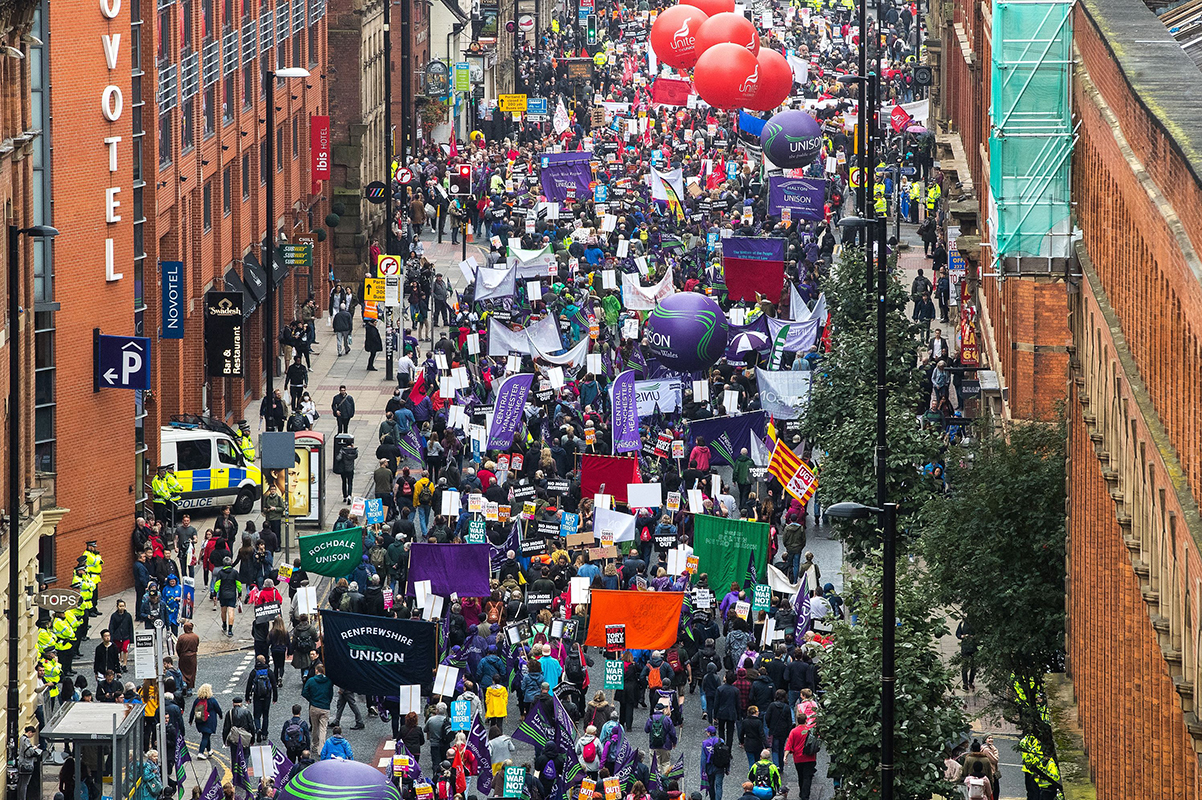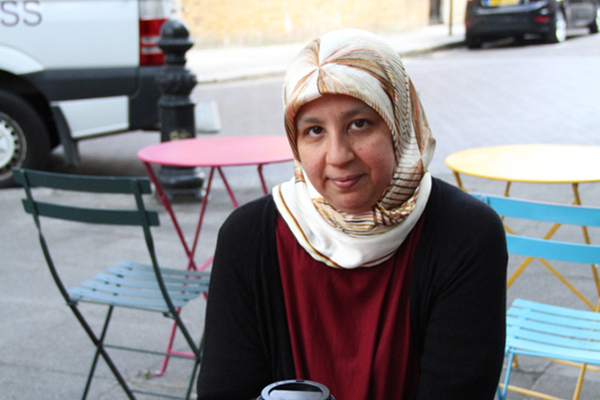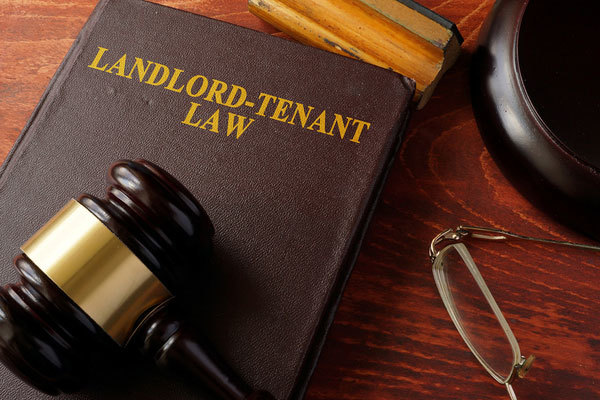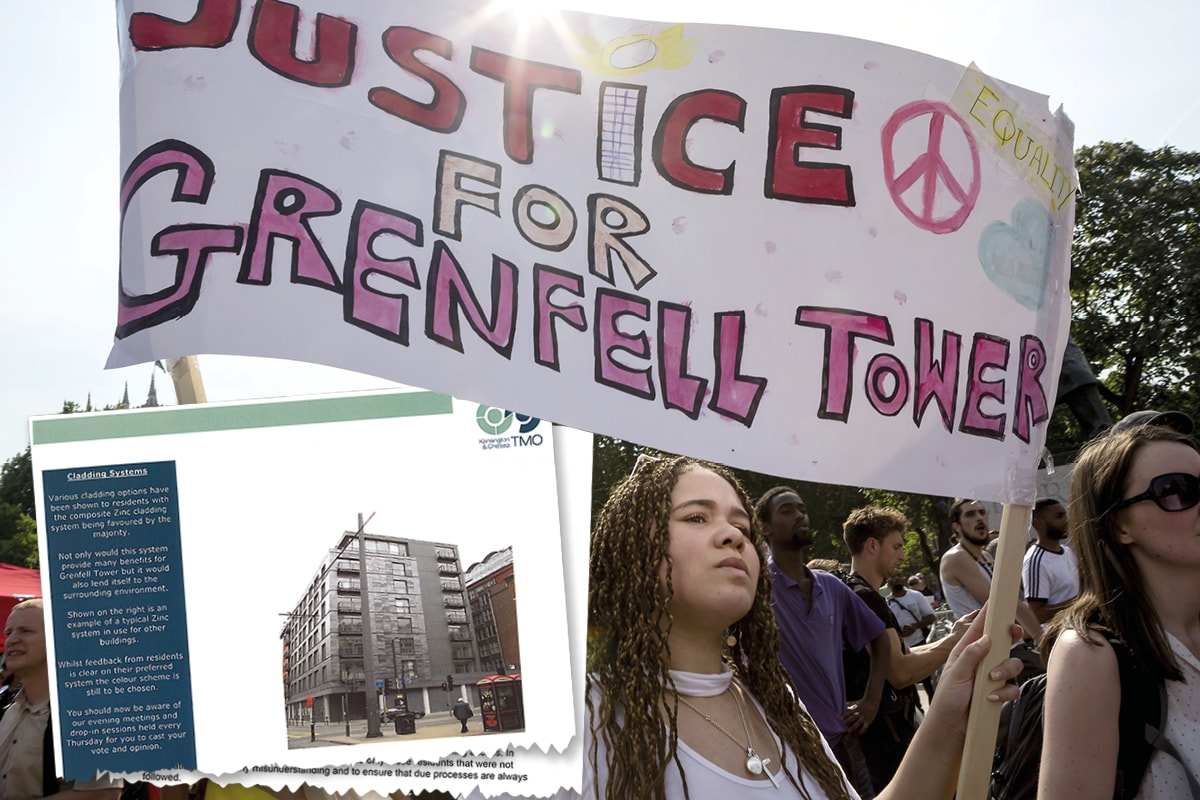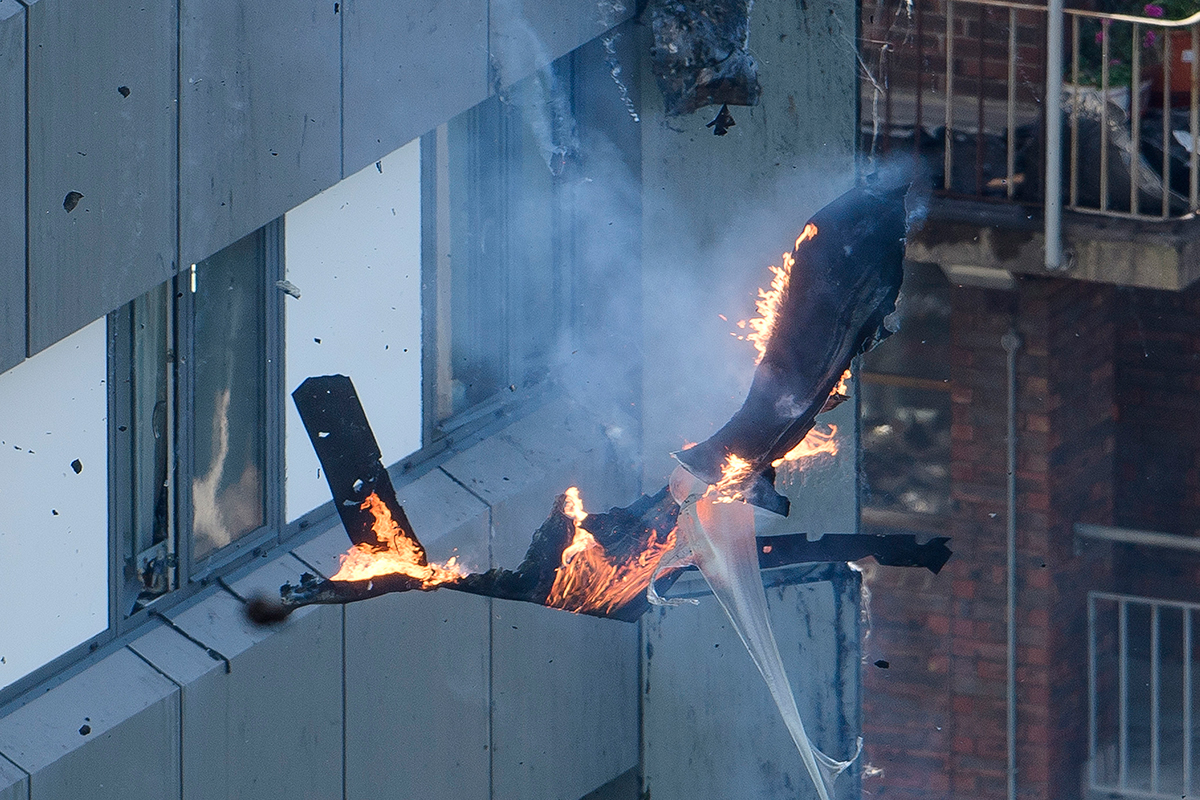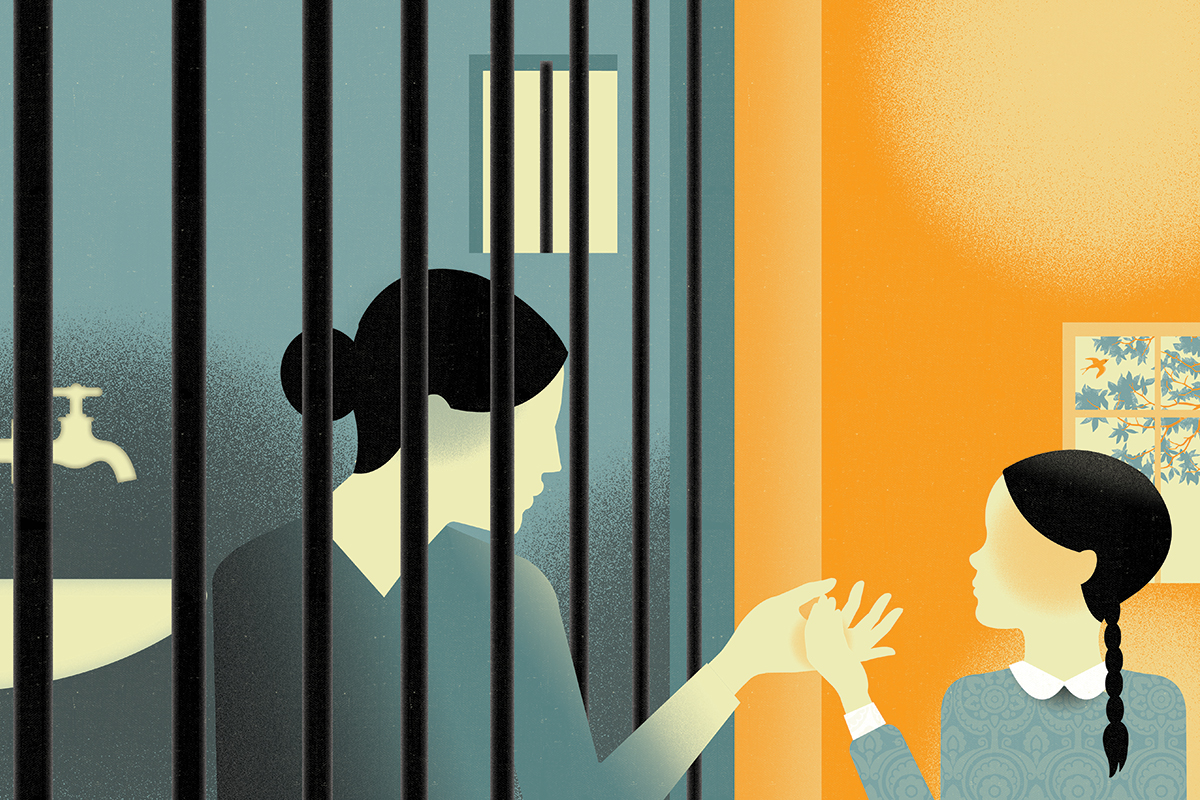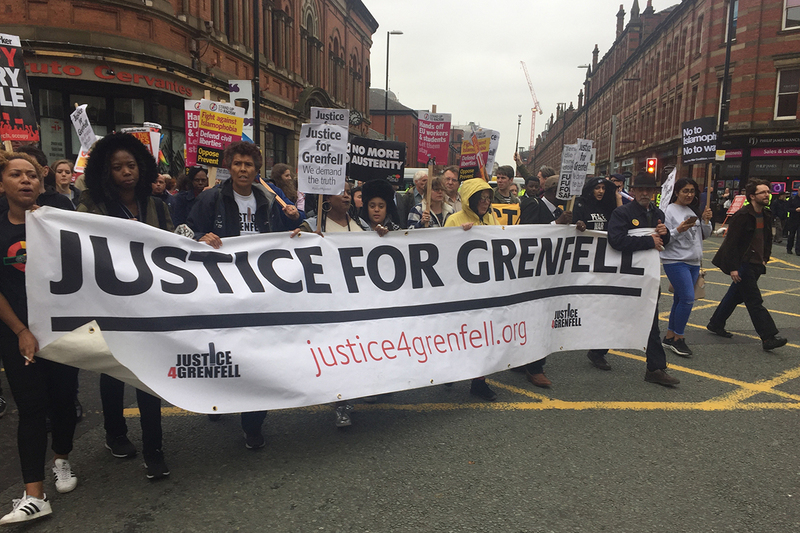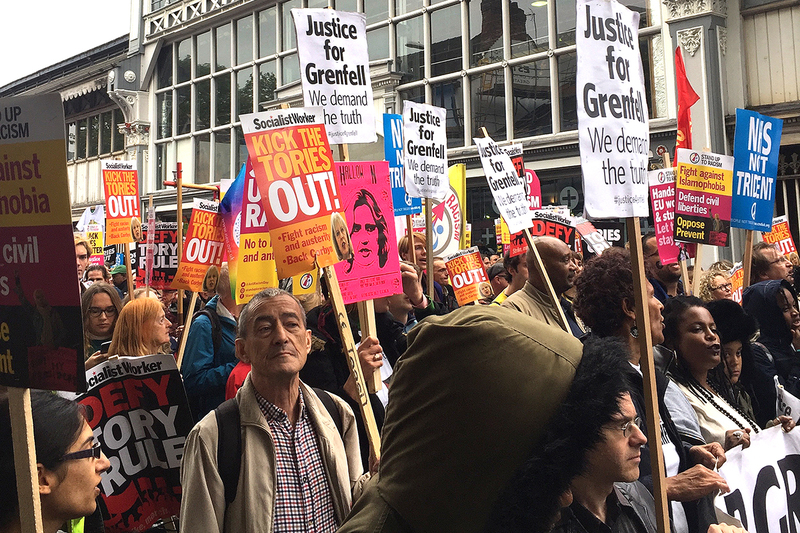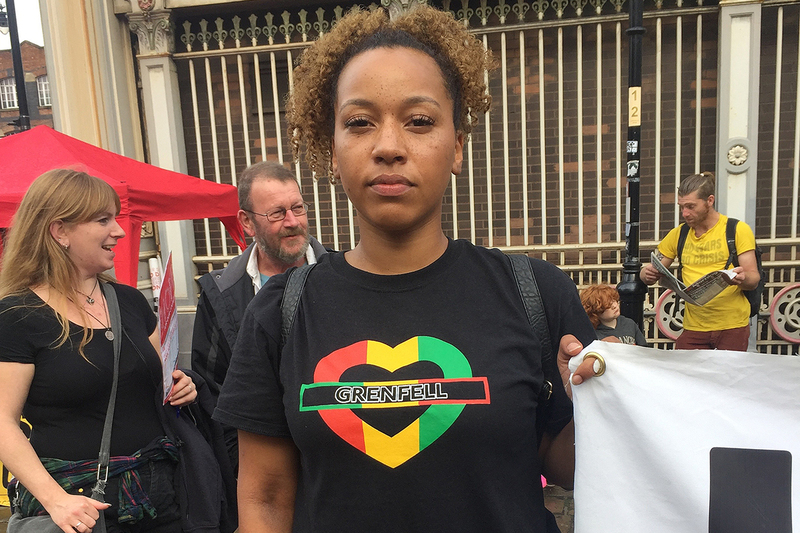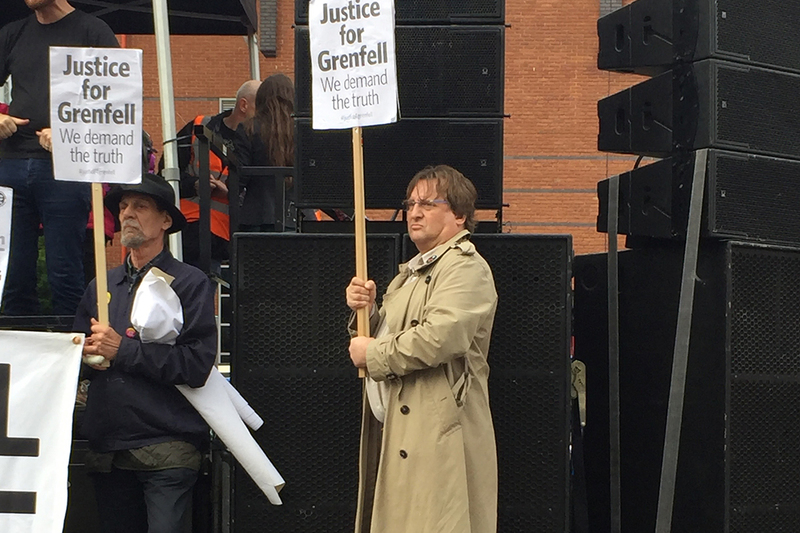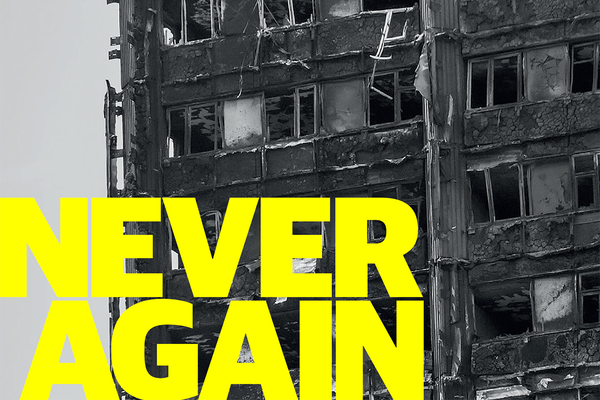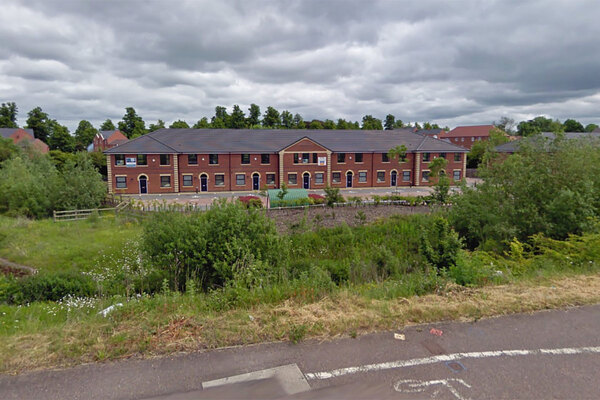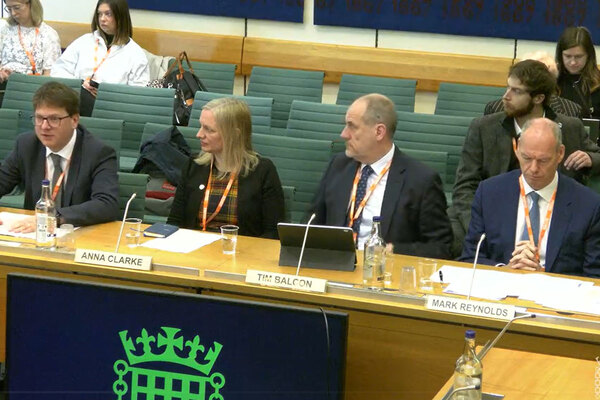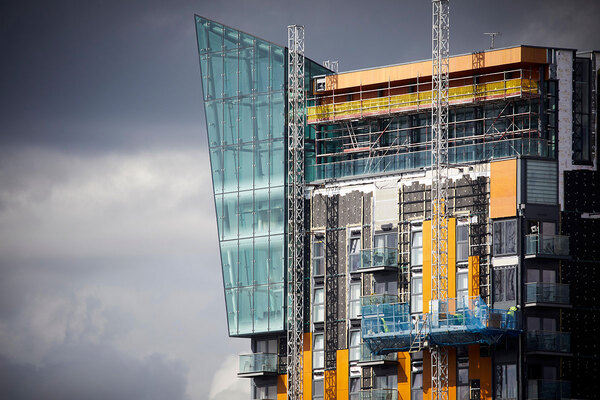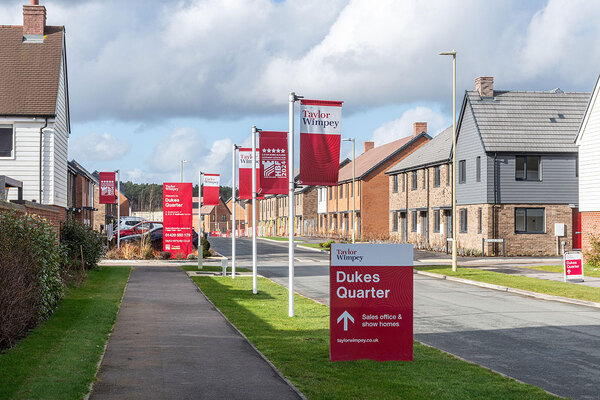Grenfell: in search of justice
Four months on from the Grenfell Tower fire, Gavriel Hollander joins a march in Manchester to hear the views of those affected by the tragedy. Photography by Rex Features and Gavriel Hollander
“Wherever they go, we’ll be there,” says Yvette Williams of Justice4Grenfell as she and her 10-year-old daughter Maya stride down a side street in the shadow of Manchester Central, home to this year’s Conservative Party conference.
Ms Williams is one of the chief organisers of the community-led group that formed in the febrile days following the horrific early morning of 14 June, when many of the group’s members watched from outside as friends and neighbours died.
‘They’, in this instance, refers to the government. And the feeling among this small army of local volunteers, almost all of whom lost people in the fire that engulfed Grenfell Tower, is that the response from those in power – both nationally and locally – has been far from adequate.
But it isn’t only Justice4Grenfell members who have gathered under a typically grey autumnal Manchester sky this Sunday afternoon.
While communities secretary Sajid Javid addresses a sparsely populated conference hall, less than a quarter of a mile away the streets echo with cries of “Tories, Tories, Tories, out, out, out,” as protesters demonstrate against austerity. Along with a Brexit protest taking place nearby, an estimated 30,000 have come to the North West to make their voices heard.
A gaggle of marchers carry “Lancashire against fracking” signs, while the streets are packed with volunteers selling the Socialist Worker newspaper. A neatly dressed young man – almost certainly not born when the Soviet Union collapsed – is waving a large hammer and sickle flag outside an office building on Deansgate.
Lending a voice
Amid the sea of homemade placards, the group from west London carry a simple black and white banner, stretched across them as they walk slowly towards Piccadilly Gardens. It reads “Justice for Grenfell”.
But what would justice actually mean for the victims and survivors of the blaze that claimed at least 80 lives in the summer? “It comes in many forms,” says Judy Bolton, another of the group’s co-ordinators.
“For some it will be getting back what they have lost; people want to feel human again. For many it is about criminal convictions. Somebody made decisions that led to these people dying.
“For me it’s about exposing the greed of this government and the greed of austerity. Today is about articulating that it’s austerity that made Grenfell burn.”
It has been an early start for the group of around a dozen, who caught a 7am coach from Ladbroke Grove. By the time they join the march – and meet Inside Housing – it is already past midday.
Two hours later they arrive at Castlefield Bowl, where the march’s organisers – The People’s Assembly Against Austerity – invite them to take the stage and address the crowd.
For Ms Bolton, it is an emotional moment.
“It feels really good,” she says after receiving rapturous applause for her brief, powerful speech. “We hadn’t planned for that. The reason it felt good is that I know there are so many people who do not have a voice and these people were not listened to before [the fire].”
Justice4Grenfell had asked survivors and families of the bereaved to join them on the day, but some are relieved that none have made it to Manchester.
“We have a responsibility to the survivors to make sure they are safe,” Ms Bolton tells Inside Housing a few days after the march. “I think we did them proud and represented their voices but I am glad in hindsight that none of them were there.”
CLICK HERE TO READ ABOUT OUR FIRE SAFETY CAMPAIGN
Frank Kovacs, who grew up in Ladbroke Grove and now lives less than a mile from Grenfell Tower, echoes the point: “They [survivors] cannot get out there themselves because they are traumatised; this shows they are not forgotten. There’s been a lot of support so we know it’s struck a chord with people.”
On the day, many of the group say the sheer scale of events such as this can be overwhelming, even for them. Those who rushed to the tower on the night of the fire, having been woken by sirens or phone calls from relatives, are themselves still suffering shock.
“You come to something like this and it brings it all up again,” says Tasha Brade, as she holds up one end of the banner on the slow march from Castlefield Bowl to Piccadilly Gardens. “I’m like two people at the moment. I can be strong when I come here and then I am walking down the street and something can set me off and I crumble again.”
Ms Brade, who took two weeks off work to help out at emergency centres in the immediate aftermath of the tragedy, says she has found herself standing at the foot of the tower with no idea how she got there. For her, it’s a sign of trauma. But she is one of many who feel that the response, in terms of counselling and support, has been far from what is needed.
“People talk about mental health issues,” explains Mr Kovacs, “but this is trauma and bereavement; I didn’t see the fire but even I have nightmares about it.”
Tories Out anti-austerity demonstration against the government during the Conservative Party conference
Ms Bolton’s 12-year-old daughter Indiana has also come to the march. Her mother believes the events of the summer have taken a particular toll on children.
“It’s so hard for her. When they went back to school in September it became even more apparent. Sometimes she will get really insular. She shuts it out because the enormity of it is just too much. It’s challenging as a parent – I still struggle with the emotions of it all, too.”
As the afternoon wears on and the group passes through the city streets, a growing band of support seems to coalesce around them. Two young activists with a megaphone seem to fall in step with the Grenfell banner, leading the crowd in chants. Cries of “justice for Grenfell” ripple back through the crowd.
Tasha Brade
It is yet another moment when those who have been closest to the tragedy realise the impact it has had on the national conscience.
“We are very focused on where we live, in Ladbroke Grove, but the word has got out there,” Ms Bolton later elaborates. “It has become a rallying cry. At times when we’ve been running low on energy and questioning ourselves, it’s been huge.
“There are moments when I think ‘what am I doing here’ but seeing the wider picture and seeing how it is [affecting] the country as a whole…” she trails off, but it is clear that knowing such support is there is important for grassroots campaigns, sometimes struggling to muster energy, let alone resources.
But is there any concern that the cause of the Grenfell survivors and victims could be lost – or even co-opted – in the melee of angry protest into which they have been catapulted? The group is careful not to be seen chanting any overtly anti-Conservative slogans or be pictured with any of the other political messages. As one member of the group points out, “there might be people who died who voted Tory”.
There is a fine line to tread. Ms Bolton later assures Inside Housing that the group is apolitical: “We are very careful. We don’t want to be used as a political football or something to poke the Tories with.”
Judy Bolton
Yet social housing and the systemic failures that Justice4Grenfell is campaigning about are intensely political issues. Ms Williams, a Kensington resident for 34 years, was invited to speak at a fringe event at the Labour Party conference a week earlier, but the group claims that no such invites came from the Conservatives.
“You cannot separate this from the other social housing issues,” she contends when asked why she feels there has been so much support for Grenfell along the march. “This is about anyone who lives in a local authority where they do not care about working-class people.”
Rich and poor
Others go further. “Justice4Grenfell is important to everything that is going on today because if you want proof of what the Tory government is doing to ordinary working-class people, Grenfell is that,” argues Ed Rogers, who is also part of the march.
“Kensington and Chelsea is a rich borough and the council only cares about the rich. People are angry but the consensus is for a peaceful demonstration. In my opinion, working-class people, black people, get nothing from being peaceful. The council has done nothing for them.”
Frank Kovacs
The focus of much of the ire is the inquiry, led by retired judge Martin Moore-Bick. The feeling among those in Manchester – and more widely in west London – is that the terms of reference are too narrow, focusing on the events of the night of the fire.
Another marcher who lives close to the tower, professor Chris Imafidon, says he was invited but declined to give evidence to the inquiry. He voices a feeling that typifies the community’s lack of faith in the inquiry.
“It is not independent of government interference,” he tells Inside Housing after leaving the stage at Castlefield Bowl. “They want someone to do a technical analysis of what happened. They do not want to look at the TMO [Kensington and Chelsea Tenant Management Organisation]. [Mr Moore-Bick] is working on a narrow remit… of course it’s going to be a whitewash. Grenfell is not about fire; it’s about social inequality. For us, justice just means equality. While there’s inequality there will never be justice.”
The coach carrying the Justice4Grenfell campaigners arrives back in Kensington after 10pm. It has been a long day, but it has been worth it.
“Being at the march was brilliant,” reflects Ms Bolton later, saying that – as much as anything else – it is a “bonding experience” for the group, even if they didn’t manage to get close to conference goers.
“There are days when I feel like I can’t go on and that’s when we need to support each other the most.”
Never Again campaign
Inside Housing has launched a campaign to improve fire safety following the Grenfell Tower fire
Never Again: campaign asks
Inside Housing is calling for immediate action to implement the learning from the Lakanal House fire, and a commitment to act – without delay – on learning from the Grenfell Tower tragedy as it becomes available.
LANDLORDS
- Take immediate action to check cladding and external panels on tower blocks and take prompt, appropriate action to remedy any problems
- Update risk assessments using an appropriate, qualified expert.
- Commit to renewing assessments annually and after major repair or cladding work is carried out
- Review and update evacuation policies and ‘stay put’ advice in light of risk assessments, and communicate clearly to residents
GOVERNMENT
- Provide urgent advice on the installation and upkeep of external insulation
- Update and clarify building regulations immediately – with a commitment to update if additional learning emerges at a later date from the Grenfell inquiry
- Fund the retrofitting of sprinkler systems in all tower blocks across the UK (except where there are specific structural reasons not to do so)
We will submit evidence from our research to the Grenfell public inquiry.
The inquiry should look at why opportunities to implement learning that could have prevented the fire were missed, in order to ensure similar opportunities are acted on in the future.
